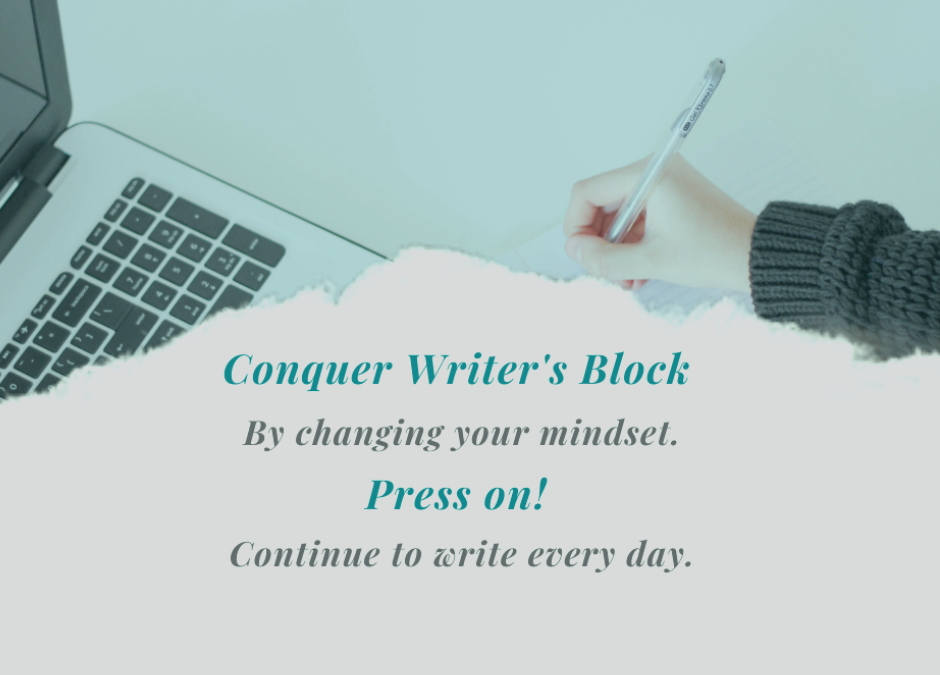Defeating writer’s block isn’t easy unless you know what helps. For a long time, I struggled with this often. I’d face that blank computer screen or page but the words seemed frozen inside my mind failing to come out.
Eventually, I learned to integrate these following steps when challenged with writer’s block. In this post, I offer 5 remedies that work to help free your mind to write.
Let’s get started!
1. Journal Writing

Years ago I developed a daily habit of journal writing. This practice changed my life both personally and as a writer. Through keeping a daily journal I discovered my love for writing.
Journaling is a great way to keep writing even when you don’t want to.
You’ll clear your mind which will help you put your thoughts into perspective.
It’s encouraging to go back and read what you’ve previously written.
You will develop a consistent writing routine.
To explore the subject of journaling further you might enjoy this post written by Bryan Hutchinson
Journaling Can Be a Life-Changing Tool ( You Just Need to Know How to Take Advantage of it)
2. Write from your experiences

When writing from your own life experiences you’re writing what you know. You’ll write with a passion and a purpose. Your writing will be richer when you write about what matters to you. When you’re not interested in what you write about then it will be difficult to write about it all the time.
My friend Anne Peterson always says “Write the scary stuff. The things that you are most afraid write.”
Anne was recently interviewed about self-publishing and writing. You can view the video interview here.
3. Write something every day

Making a point of writing every day is crucial to developing a consistency and sharpening your writing skills. You’ll develop a writing habit that will help you grow as a writer. Doing this makes the act of writing more enjoyable. You’ll progress over time into becoming good at what you do. Writing consistently is important to your growth as a writer.
Tips to help you write each day…
-
- Free write: This is one of my favorite things to do. I just start writing about whatever is on my mind.
-
- Read a blog post someone else wrote and comment on it.
-
- As referenced in point 1: Write a journal entry.
-
- Join a writing community where you can engage with other writers and bloggers. You’ll feel more encouraged by others. Frank McKinley founded the Tribe Builder’s Network. A Facebook group I highly recommend for all writers and bloggers seeking to get the attention your writing deserves!
-
- Time Blocking; Set aside a time to write. One you can commit to. Decide how long you’ll write for and stick to that plan. Like exercise even starting small and working up. More important than the time spent is the consistent action of writing for a period of time. This will develop discipline and consistency.
-
- Word count: Decide on a word count. Commit to writing a certain amount of words each day.
-
- Write something every day even if you don’t want to.
-
- Inspiration and motivation may not always be there but press on… write anyway.
4. Read

Are you a reader? Reading is helpful for when you can’t find the words.
- If you can’t find the right words to write then reading will feed them to you.
- Vocabulary and spelling will improve.
- Sentence structure and grammar skills will sharpen.
6. Let go of perfectionism

One of the problems writers and bloggers face is with perfectionism. We want our writing to read well and be interesting to others. Something I’ve discovered many of us face. The truth is we’ll never write perfectly.
Yes, it is important to create good quality content. It isn’t important to be perfect. It is impossible to please everybody. What you write about won’t benefit everyone. Sometimes you won’t publish your best work. That’s okay. Often what I’ve thought was not my best work got the most attention!
The main thing is that you keep writing and publishing your work. If you are consistent in writing and shipping it out you’ll grow over time. Your writing will get better and better. I’ve never met a successful writer or blogger who likes everything they wrote. Most important thing is to keep writing!
Further reading;
How to Kiss Writer’s Block Goodbye Forever – In Just 10 Minutes by Frank McKinley
Writer’s Block: 9 Things You Can Try to Cure Writer’s Block When The Words Won’t Come by Anne Peterson
Join the conversation.
What helps you work through those times when you’re challenged with writer’s block?
I’d love to hear your thoughts in the comments below.


Hi Cori, writing and reading every day is the key I believe. I know Ryan got me to write 500 words per day and that really made a difference for me. And when you take a break, it is harder to get it back! But it’s like riding a bike, you can pick up again and slowly get back to where you were 🙂 Thanks for the tips!
Hi Cori,
Great tips you have here and these steps will benefit all especially newbie writers and intermediates. The use of a journal is fascinating, for this, I have a hardcopy journal and a software I installed on my laptop and smartphone so I can easily put my thoughts together wherever I am.
In fact, I use Evernote and Google Drive respectively. Furthermore, the concept of “writing something every day” and “let go of perfectionism” works pretty well. My friend And pro-blogger Ryan Biddulph always emphasize the need to write 1000 word every day and forget the editing and stuff. Why? Because it helps you improve your writing, bring out the juices in you, and say bye to writer’s block.
Recently, a reader of my blog asked if I could write on this same topic “how to overcome writer’s block.” I guess you beat me to that.
Thank you for sharing.
Hi Moss, thank you for your comment. Keeping a journal helps me tremendously to keep my thoughts flowing out. Love Evernote and Google Drive as well!
Letting go of perfectionism is so important! I used to struggle with it so much. Always questioning if it was good enough to publish.
Ryan’s suggestion to write 1000 words everyday without edits is so effective. It works well for me too. I even started to set a timer and not allow myself to stop writing until it indicates time is up.
I’d love for you to write one on “how to overcome writer’s block” as well. I’ll add the link to to it inside this post for further reading. 😀
ALL Perfect suggestions Cori. Yep yep yep or…to sum it up. “JUST DO IT!!” hehe
Thanks for taking the time to comment Michelle!
My best friend says this all that time ” Just do it! ”
Sometimes I have to repeat that a dozen times! 😀
Great post with a lot of helpful tips, Cori! My favorite point from this post is: “Inspiration and motivation may not always be there. Just write.” I hope this helps more writers put words on paper (or screen) so they can share their stories with others.
Thanks for your comment Maya! When I finally continued to write even when I didn’t want to…I found eventually the words would flow easier again. 😀
Excellent article! Precise and practical. I’m better for reading it.
Thank you for your comment Pat. I’m happy you liked it found it useful to you. Happy writing! 😀
Cori, every one of these tips is summed up in this sentence: Write whether you want to or not. Taking action to write something – anything – creates momentum that moves you forward.
These tips are great and I hope any writer who reads them gets unstuck fast!
Thanks for the comment Frank! So true about when you say the tips are summed up in the sentence about writing whether you want to or not.
It always helps to remind my self that even if I don’t want to write… write anyways! 😀
Thanks for the mention, Cori. Yeah, the dreaded white screen. And yet, some of my best writing has often followed those times I don’t know what to write. Maybe it’s the resistance we’ve heard so much about. Not sure, but I can tell you this. I will keep fighting it, because I have something to say to the world. Actually, I have a few things.
Thanks for your comment Anne! Like where you say “that some of your best writing has often followed those times when you face the challenges of writer’s block”. I too have found the same to be true for me. Yes. We have to keep fighting it! When we keep writing no matter what… I’ve found eventually the words flow freely again. 😀
And when those words start flowing again, there is nothing like that. Then I just let them come out and I don’t bother trying to edit. I have to just let them bleed out. Later, there is always time to tighten up words, to get rid of the fluff, and to make sure each sentence written is easy to understand. If the flow stops anywhere, then that is where I want to tighten it up.
Anne, I too love it when the words flow easily again! At this point, I don’t try to edit either. Love when you say when the flow stops that’s when you tighten it up. Just write until that happens. So great! 😀